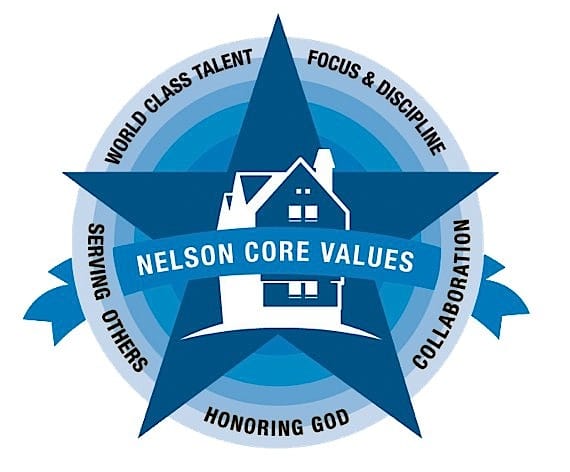Continuing in my series of “20 Leadership Questions,” we come to the seventh question that Michael Smith asked when he interviewed me. This is basically a follow-up on the previous question.

Michael asked,
How do you or other leaders in your organization communicate the ‘core values’?”
When we finished the initial draft of our core values at Thomas Nelson, we realized that identifying the values wasn’t enough. Most organizations stop there. They hang their list in the lobby and go on to the next thing.
However, with the help of Dan Meub, my executive coach at Building Champions, we understood that we had to go further. We had to translate our core values into behaviors.
For example, we identified “World Class Talent” as one of our five values. By this, we mean that “we do what is necessary to attract, develop, and retain world-class talent.” We then identified eight specific behaviors that reflect this value. (You can see the complete list here.)
Number four says that “We communicate to our employees how we as a Company are doing.” Why? Because world-class people don’t want to be left in the dark. They want to know how the company is doing. So every quarter, whether the results are good or bad, I stand in front of the workforce and tell them how we did.
That’s just one example, of course, but you get the idea. Unless values become behaviors, you only have a set of platitudes. Unfortunately, these platitudes will ultimately create cynicism when smart people realize that your behavior doesn’t line up with your words.
So at Thomas Nelson, we rely on six methods to communicate our values:
- We live our values. Leading by example is the most powerful communication tools any leader possesses. While values must be taught, they are more often caught as people observe our lives. Like it or not, our behavior is always communicating our values. Therefore, we must be very intentional about how we model those values. We have to “walk the talk.”
- We teach our values. We put together a syllabus at Thomas Nelson that contains our complete corporate ideology. I taught it to our company a few years ago. I also teach it once a quarter or so to all new employees. One of the sections is on Core Values. We try to make it very clear about what we value and what we expect in terms of values-based behavior.
- We reward our values. We try to notice when people are living out the core values and affirm them in real time. But we also established an annual “Core Values Award.” Once a year all of our employees nominate and vote on the five people who best exemplify our values. Then we announce the winners at our Quarterly Team Meeting. We give each one public recognition, a trophy, and a cash prize.
- We hire new people based on our values. When considering a new hire, we look for three things: competence, personal character, and a cultural fit. Values are expressed in the last two. We want to hire people who share our values. If the values don’t resonate with the prospective employee, we know they are not going to be a good fit with our culture. It is better to avoid the problem on the front end than have to deal with it on the back end.
- We review people based on our values. A section of our annual review process is dedicated to our core values and how we did living them out. Admittedly, there is a subjective element to this evaluation. However, our goal is not to be scientific; it is to foster an on-going conversation about our values, so we can reinforce what is important.
- We let people go based on our values. We can educate people if they don’t have sufficient knowledge. We can train people if they don’t have adequate skills. We can even disciple people if their character is deficient. But we can only do these if we have a willing subject. If someone consistently behaves contrary to our values—even if they are a high achiever—we have to show them the door. Otherwise, it reflects on our credibility and commitment to our values.
While all these are important, probably the most powerful way we communicate our values is in the decisions we make. People watch these carefully. The more we can connect our everyday decisions to our values, the more we will reinforce them and shape our culture.
Disclosure of Material Connection: Some of the links in the post above are “affiliate links.” This means if you click on the link and purchase the item, we will receive an affiliate commission. Regardless, we only recommend products or services we use and believe will add value to our readers. We are disclosing this in accordance with the Federal Trade Commission’s 16 CFR, Part 255: “Guides Concerning the Use of Endorsements and Testimonials in Advertising.








